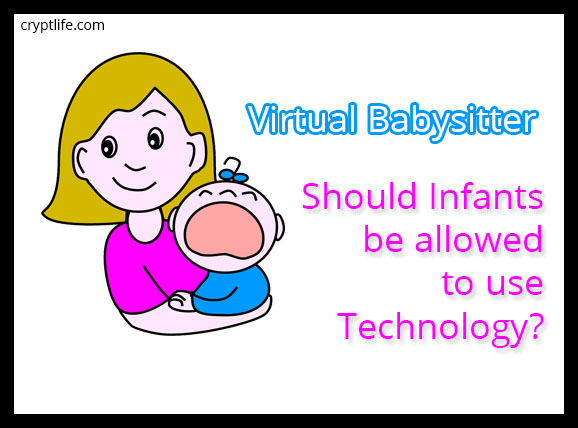Children born today are the first generation to have been born in a world of smartphone and iPad technology, and app developers are quickly finding that infant and toddler apps are a success. Some of the apps comes out well and covers a lot of infants but still, few doesn't makes infants more understandable. Few even teaches some incorrect stuffs. But should infants be exposed to a screen? Here are a few pros and cons to allowing infants to use technology.

Pro: Exposure to New Things
One of the benefits of an iPad or smartphone app is that it can expose infants and toddlers to things they normally wouldn't see. For example, one farm animal app gives the sound of the animal when you tap it, so kids learn that cows go "moo" and pigs say "oink." For people with family spread around the country, the iPhone's FaceTime lets their children see and talk to extended family, too. And recent studies reported by NPR have shown that babies who interact with a live human via a tablet or smartphone do actually learn better.
Con: Passive Screen Time Eliminating Interaction
Interactive apps and games are one thing. Plopping a baby in front of a TV show is another. Psychologists are unanimous in frowning upon passive screen time. The reason? Children who simply watch a lot of media have been found to be behind in language and other development. The reason? When infants are watching something passively, they are missing out on other ways they could be experiencing interaction with another person.
Pro: Video Games Improve Reaction Time
Psychology Today recently published an article that, while disparaging parents from too much screen time, reported that children who play video games do have an improved ability to learn. Video games apparently gave kids better attention ability, better visual-spatial capabilities, and the "capacity to identify details among clutter."
Con: Less 3D and Sensory Exploration
Even a good iPad app about farm animals only uses, at most, three senses””and that's assuming that you consider touching a flat screen a good representation of the sense of touch. What about sheep wool feels? What about smell? Or taste? And that's a much more minor problem compared to what smartphones lack in terms of experiencing 3D. As one article discussed, there is no screen-time replacement for taking two blocks and learning how to stack them.
Pro: A Safe Babysitter
When you need to get something done but the kids won't leave you alone, the television, iPad, or iPhone is a great emergency babysitter. The trouble is that you worry that your kids are being exposed to content above their heads. One wrong click of the remote when you are out of the room, and they're suddenly watching Game of Thrones on HBO. A wrong swipe on the iPad and they're picking up where you left off on an R-rated movie on Netflix.
Thankfully, many programs are in place to eliminate this concern, including the Just for Kids section on Netflix. This is a channel that only shows kid-friendly content. It also keeps My Little Pony and Dora the Explorer out of your personal list of recommendations. And if you have a smartphone with a monthly 4G package, you can stream the safe content seamlessly for your kids while you run into the store or sit in the waiting room.
Con: Changes in Brain Development, Lower Attention Span
Psychology Today reports that because infants' brains are still developing, technology can and has changed the way their brains developed. For example, reading helps children gain better attention spans and form fantastic imaginations. Television decreases the use of imagination and creates a fragmented attention. Internet use further fragments attention by placing ads and links within a text or around a game or movie. Too much of that screen time and children will be less able to learn and less prepared for the real world.
The final conclusion? Most professionals recommend a limited or balanced approach to screen time, and never one that is unsupervised. Instead, use the iPad as a way to interact with your child, not a way to get away from them.
What is your theory about kids' screen time?
